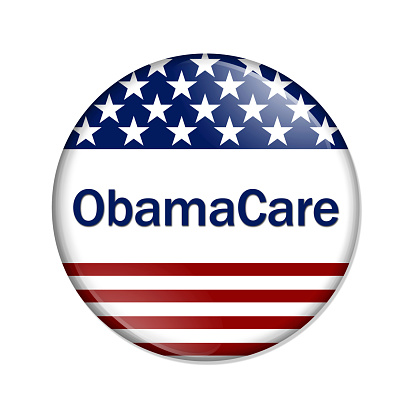Questions Continue Regarding Healthcare Reform
Since the passing of the Patient Protection and Affordable Care Act, otherwise known as “Obamacare,” many individuals have been unsure as to how their access to addiction treatment would be affected. As the legislation continues to change and evolve, many remain confused as to their coverage eligibility, whether or not their policy is valid and, if not, how to go about securing a comparable policy.
many remain confused as to their coverage eligibility, whether or not their policy is valid and, if not, how to go about securing a comparable policy.
On the basic premise that there are fewer uninsured Americans today than there were before the implementation of the Affordable Care Act, it’s impossible for addiction treatment availability to not have improved. An estimated 47 million Americans were without health insurance in 2012; according to the Congressional Budget Office, 30 – 33 million of those people are now covered.[1]
By extending Medicaid coverage and creating low cost “health insurance marketplaces,” Obamacare has expanded coverage to millions who would not have been able to receive them otherwise. Medicaid is a government funded program that provides basic health insurance to people living below the federal poverty line.
States had the option of either accepting expanded Medicaid coverage or establishing healthcare marketplaces. Twenty-five states, along with Washington D.C., have accepted expanded coverage and must provide health insurance service to individuals and families living at or below 133 percent of the poverty line. The marketplace exchanges come with several incentives to make it easier for low income individuals and families to purchase coverage. All of this has expanded health coverage to more Americans, which by default has expanded addiction care availability.
Substance Abuse and Mental Health Treatment Made Priorities
 The fact that more people are covered than ever before is not enough on its own to provide adequate substance abuse and mental health treatment for the more than 23 million drug addicts and alcoholics in the nation.[2] Coverage for these conditions are also specifically addressed under ACA.
The fact that more people are covered than ever before is not enough on its own to provide adequate substance abuse and mental health treatment for the more than 23 million drug addicts and alcoholics in the nation.[2] Coverage for these conditions are also specifically addressed under ACA.
Beginning in 2014, insurance companies were barred through legislation from denying coverage to any individual based on pre-existing conditions – including substance abuse. Additionally, the 2008 Mental Health Parity and Addiction Equity Act (MHPAEA) required all insurance plans to provide the same level of coverage for mental health and substance abuse treatment as for regular medical care. The ACA also lists mental health and substance abuse treatment as one of 10 “Essential Health Benefits,” requiring all health insurance providers in the nation to provide coverage at parity with basic medical treatments.
The U.S. Health and Human Services Department estimates these new provisions will give approximately 32 million new Americans access to substance abuse treatment and will expand substance abuse treatment for another 31 million. [3]
Insurance Providers Holding Back Treatment
While the changes in coverage availability and standards would seem to clear the way for millions of addicted Americans to get the tricare drug rehab coverage they need, there are some obstacles and challenges that must still be mitigated. Many insurance providers are searching for, finding and exploiting unintended loopholes in the law.[4]
In some cases, unscrupulous insurers have raised deductibles for treatment coverage to as high as $25,000 – meaning they won’t begin paying for treatment until the bill has exceeded $25,000. This puts rehab centers or patients in the difficult position of footing the bill for the first few weeks of treatment.
Additionally, insurance providers have frequently been unwilling to pay for extended treatment at 90, 60 or even 30 days in some cases; and they have increasingly recommended outpatient substance abuse treatment as the preferred option.[5] While short-term and outpatient treatment may be enough for some drug addicts and alcoholics, many need extended care for a complete recovery.
Obscure Law Restricts Access for Many
Another issue is an obscure, half-century old law that is holding back treatment in several states relying on expanded Medicaid. Decades old legislation says that treatment centers with more than 16 beds cannot bill Medicaid for residential care. An estimated 47 million Americans were without health insurance in 2012; according to the Congressional Budget Office, 30 – 33 million of those people are now covered.
The typical substance abuse facility has far more than 16 beds, putting many in a quandary when attempting to provide treatment to low income adults. Either turn away a person who needs help, create a waiting list or absorb the cost.
In response to this, a rash of 16-bed treatment centers have opened up in the 25 states that have accepted expanded Medicaid, and others have downsized to accommodate this loophole. Still, this has not come close to fully addressing the problem. In California, for instance, only 10 percent of the state’s 18,155 beds are located in an addiction center with 16 or fewer beds.[6]
Nation Scrambling to Meet Needs
 Another roadblock for the expansion of substance abuse and mental health treatment is the lack of available facilities and medical professionals. The Human Resources and Services Administration reported that there were 3,669 Mental Health, Health Professional Shortage Areas (HPSAs) containing nearly 91 million people. It would take 1,846 psychiatrists and 5,931 other practitioners in the U.S. to fill these needs. The organization also said that people in rural areas face an even larger shortage.[7]
Another roadblock for the expansion of substance abuse and mental health treatment is the lack of available facilities and medical professionals. The Human Resources and Services Administration reported that there were 3,669 Mental Health, Health Professional Shortage Areas (HPSAs) containing nearly 91 million people. It would take 1,846 psychiatrists and 5,931 other practitioners in the U.S. to fill these needs. The organization also said that people in rural areas face an even larger shortage.[7]
There simply aren’t enough professionals to account for the boom in insured individuals. So while people are covered, there are either a limited number of healthcare professionals accepting new clients or facilities that are simply too overcrowded to help others.
BHOPB is Here to Help
If you or a loved one are in need of addiction care, and are unsure as to how the Affordable Care Act will affect substance abuse treatment, call Behavioral Health of the Palm Beaches today. Our representatives can answer any questions you have, while working to determine your coverage eligibility and your options for pursuing treatment. We have plenty of beds available and work with some of the best mental health and addiction care experts in the world.
Don’t let confusion and uncertainty keep you from exploring addiction help for you or your loved one. Behavioral Health of the Palm Beaches is determined to work with patients and their families to get them the care they need, and help you navigate these new regulations and guidelines. Call 888-432-2467 to get the facts.



